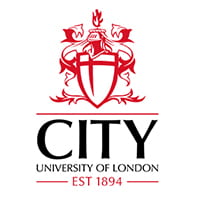My story begins in the 90’s when I was a little girl. I was diagnosed with Sickle Cell Anaemia as a baby and it wasn’t until my teenage years that I begun to understand how much the illness impacts my life on a daily basis. When I was deciding to go to university my health played a significant part in where I chose to go and further my education. I knew that I did not want to leave London, thus commencing my journey at City University.
I completed my undergrad in BSc Midwifery in 2012, and to tell you the truth it was the hardest 3 years. From having to manage placement and studying and having to navigate that with a long term health condition, it was exceptionally challenging. My advice would be to take everything one step at a time. Break down your work into sections and never leave things to the last minute.
Working in the NHS has opened my eyes to so much. Every day is a new experience and I am in a unique position as I understand what it’s like to be a service user and also a service provider. Having my illness has made me to be an empathetic and compassionate individual. It drives me to be the best midwife I can be.
In 2016 I made the decision to commence my masters degree in Midwifery (I know crazy right, like I don’t have enough on my plate!!) And for the past 3 years I have been working and studying at the same time. Doing a masters degree is not for the faint hearted and this experience has been completely different compared to my undergrad. I am pleased to say that through the support of my programme director and the disability team at the university, I have had a much better experience this time around.
A few pointers I would give are:
Never be afraid to ask for help, you are not weak in doing so. Asking for help takes a lot of strength. You never know who is willing to help you.
Work hard, play hard: it may be a cliché saying but it’s true. Everything is about balance.
Be open to everything, you never know you may learn something new.
Support each other: your course mates understand what you are going through more than anyone else, and if you’re lucky you might develop friendships for life.
And last but not least be proud of yourself, it’s not easy to do a degree. Pat yourself on the back for getting this far.
Beverley Stephanie George


